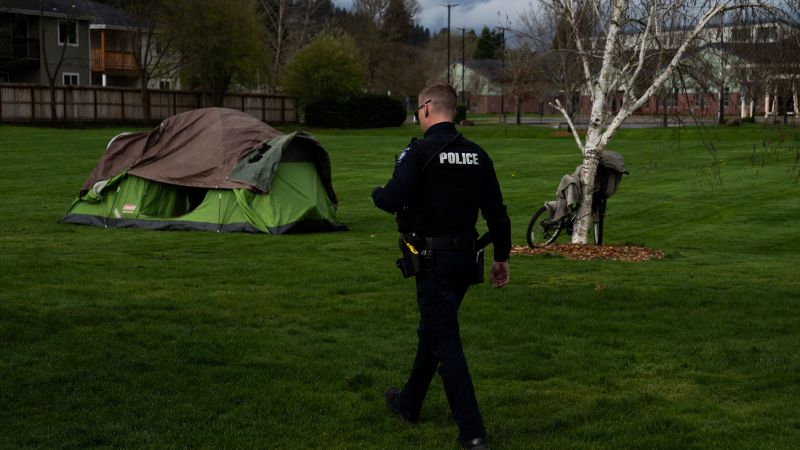In a landmark decision, the Supreme Court ruled in favor of the city of Grants Pass, Oregon, in a case involving anti-camping ordinances targeting homeless individuals. The 6-3 conservative majority, led by Justice Neil Gorsuch, dismissed claims that such ordinances violate the Constitution’s ban on “cruel and unusual” punishment. The three liberal justices dissented, with Justice Sonia Sotomayor arguing that the ruling punishes people for being homeless, stating that “sleep is a biological necessity, not a crime.”
The case has significant implications for cities grappling with a surge in homelessness and encampments nationwide. The ordinances in Grants Pass prohibited sleeping in public with bedding, such as sleeping bags or clothing bundles, and carried fines of $295 per violation. After two tickets, individuals could be banned from parks for 30 days, with the possibility of a 30-day jail sentence for violating the order.
The debate over criminalizing homelessness versus providing shelters and affordable housing was a central issue in this case. While housing rights groups condemned the ruling as cruel and counterproductive, California Governor Gavin Newsom welcomed the decision, stating that it clarifies the legal options available to local officials dealing with homelessness.
The Supreme Court’s decision has sparked varied reactions, with advocates for the homeless expressing concerns about increased law enforcement involvement in addressing homelessness, while proponents of the ruling see it as an opportunity to clear dangerous encampments and offer services to homeless individuals. In a country where over 650,000 people experience homelessness each night, the implications of this ruling are far-reaching.











